17 Essential Tips for Homeschooling (if you want to be successful)
Here are 17 essential tips for homeschooling that we have learned in over seven years of homeschooling our five children! Time-tested, practical homeschooling tips from a second-generation homeschooling mom.
It’s been a little over seven years since we pulled our oldest son out of kindergarten and decided to give homeschooling a try. In the past seven years we’ve tried dozens of curriculum, experimented with different schedules and routines, read hundreds of books on education, and added four more children to the homeschooling mix.
As I was thinking about how our oldest is now in seventh grade (how??) and our youngest could have joined the local preschool this year if we wanted to send him (double how??), I thought about what I would share with myself if I were just starting out. What do I wish I had known seven years ago, when I picked out our first few books for my bright-eyed little kindergartner?
Here are my 17 essential tips for homeschooling, but especially for the homeschoolers just starting out. And please, if you’ve got a few years of homeschooling under your belt, let me know what you think!
What would you add? What did I miss? Leave me a comment and let me know!

#1: Reading aloud is magical.
It really is. Get yourself in the habit of reading, and your children in the habit of listening, and you will never ever regret it. If you want more details about exactly why reading aloud is worthwhile, and what it does for your children, check out my post on the top 21 reasons to read aloud to your kids.
Coming in a close second on the “magical” list is outdoor time. It truly is a reset for the whole family, and I’ve never regretted any of the hours we spend in nature.
#2: Your homeschool will never be perfect.
Yes, yes, we all know this in theory – but in practice? In practice I still sometimes find myself searching for the perfect math curriculum, the perfect schedule, the perfect read aloud book. There is no such thing! In most cases, choosing a “good” curriculum or a “good” book and moving on is far better than spending days and weeks in search of that elusive perfection.
One of the (very few) downsides to continuing to read, listen to podcasts, and grow in your homeschooling knowledge and understanding is that you WILL learn things later on that will make you think, “I wish I had known that when my child was younger!” For my part, I wish I had started narration sooner and switched math curriculums sooner when I realized our first one wasn’t working anymore.
We will never have a perfect homeschool, but we can have a good homeschool, and that’s enough.
#3: Your child’s education matters, and is worth your effort.
While we don’t want to beat ourselves up in pursuit of perfection, neither do we want to fall prey to the other extreme of thinking that it just doesn’t matter. Any curriculum is fine, any educational philosophy is fine – heck, if the kids just want to sit on the couch all day every day and read comic books, it’s fine! No. Your child’s education is very important, and because we have taken on this responsibility, we want to do it well.
Ask yourself where you fall on the spectrum between point #2 and point #3, and consider whether you could stand to give more time and effort to your homeschool, or if you would be better served by showing yourself some grace and loosening up.
#4: Consistency works wonders.
Putting in the effort and taking our responsibility seriously does NOT mean we need to spend hours and hours with every child on every subject, every day. Instead, aim for consistency. Fifteen minutes of focused math work, done consistently for weeks or months on end, will result in significant growth and learning! I’ve seen it over and over again in our home.
Furthermore, as Sarah Mackenzie reminded us in a recent newsletter, consistency does not have to mean every single day. It means most days. If you run 3-4 times a week, you are a runner. If you read aloud 3-4 times a week, you are a read aloud family. If the idea of doing something every single day feels daunting – if you feel like you’re failing whenever you miss a day – remember that doing something three or four times a week counts as a consistent habit.
#5: You will have bad days.
No matter how long you’ve been homeschooling, no matter how much time and effort and intentionality you put into your homeschool, it will still happen. Take it in stride, know it happens to us all, and move on. (If you’ve had a long rough patch, however, and are having trouble getting back in the swing of things again, you could consider doing a reset like our Gentle 3-Day Reset.)
#6: You will have good days.
Often these happen when I’m least expecting it. I will look around and suddenly realize that, wow, everyone is busy and working happily and even sort of enjoying what they are doing! What a miracle! When this happens: enjoy it! And don’t sabotage yourself by assuming that if your child’s work is easy for them, you need to make it harder.
There will be plenty of challenges and opportunities for growth as you continue homeschooling – if your child has suddenly reached a plateau where long division feels easy, let them bask in that feeling and enjoy the ease before pushing them on to something new. Everyone – adults and kids included – loves the feeling of proficiency and mastery. Don’t steal that from your children too quickly.
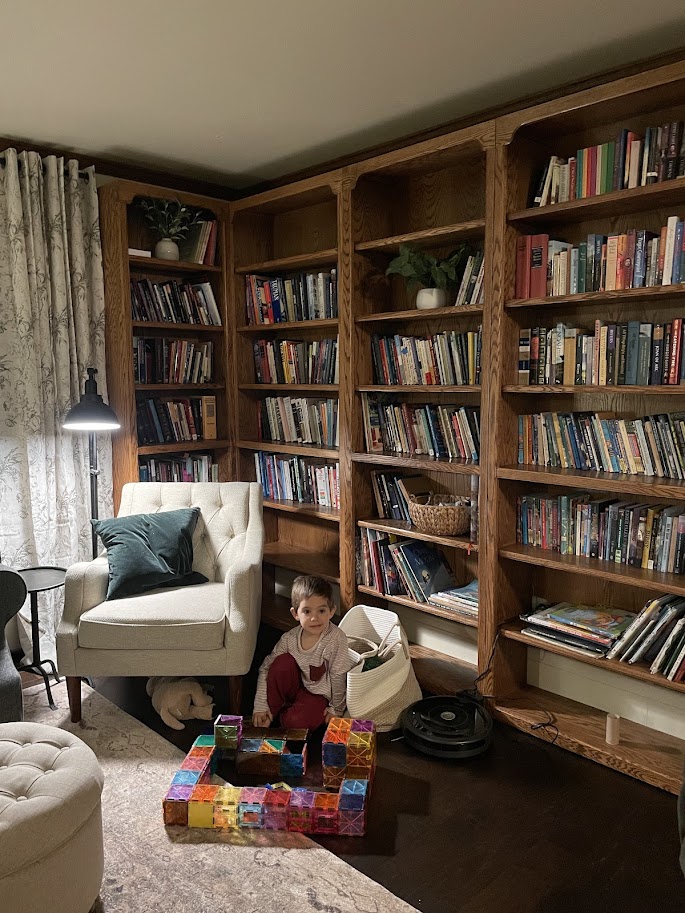
#7: Prayer is your secret weapon.
Non-Christians might disagree, but it’s hard for me to imagine how anyone makes it through homeschooling parenting life-in-general without a relationship with the God who created them. Bathe your days in prayer, your curriculum choices, your life-changing decisions and your tiny little worries, and God will provide the wisdom you and I desperately need.
#8: Kids thrive on routines.
I may be hyper-sensitive to this because I have a son on the autism spectrum who needs this more than most, but even my other neuro-typical children love knowing what’s going to happen next. This doesn’t mean you have to schedule every minute of every day – in fact, homeschooling will probably feel less stressful if you don’t – but it does mean that a consistent (there’s that word again!) routine feels comforting to everyone.
In general, the younger the kid, the more true this is. Our older boys are usually not bothered if we spontaneously decide to skip the afternoon rest time and head to the playground instead, but too many days of this sort of thing and we’ll see a massive uptick in the number of toddler meltdowns and tantrums.
#9: Plan for breaks before you burn out.
Public schools take regular breaks – you should too! Looking forward to a week off, or a long weekend, or a special field trip, can help you and the kids push forward and keep working diligently until then. Regular breaks refresh all of us – kids and mom, too.
#10: Community is important.
Online homeschooling friends are great, but an in person community is even better. If you can find other homeschoolers through your church, a local co-op, or some other group, it will mean that your kids can make friends with other homeschoolers and you can connect with moms who understand your lifestyle. We’ve found this community through Classical Conversations – there’s a good chance there is some sort of group or co-op somewhere near your location too. And if not, maybe it’s a sign that you should start one!
#11: Your kids WILL have gaps in their education.
Everyone does, no matter where they went to school. The blessing of homeschooling is that you get to choose where those gaps will lie. Rather than worrying about covering everything, pick three subjects that you care most about, focus on those, and be okay with dropping the rest if needed. Some seasons of homeschooling you’ll be able to do more subjects – and other seasons you will need to cut back and only do your essentials.
#12: Know your priorities.
Speaking of essentials, you can’t cut back to them if you don’t know what they are. Spend some time thinking about what feels most important to you and your husband in an education! Ask yourself, “When my child graduates from high school, what do I want to know for sure that we have covered?” For me, it’s reading aloud together, math, and music. Writing comes in a very close fourth.
Knowing this tells me that if I never do a single science experiment outside of our co-op, that’s okay. If my kids don’t end up proficient in a foreign language, that’s okay. If you’re just starting out with a kindergartener, don’t stress about this too much – clarity will come with time – but revisit the thought every once in a while.
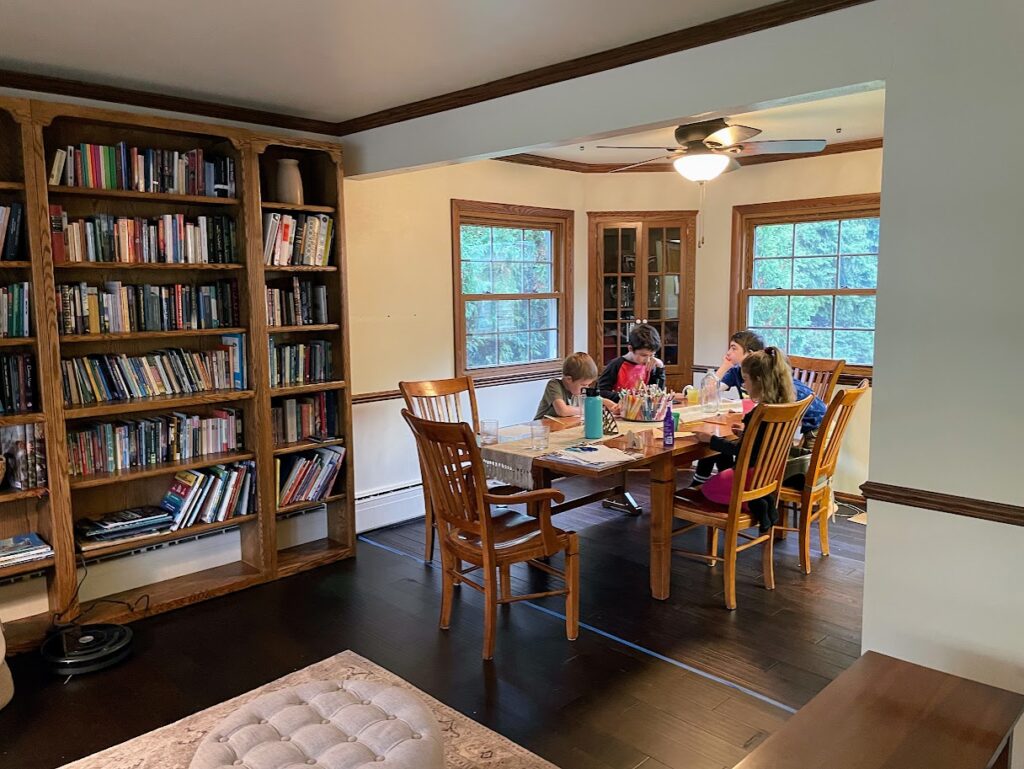
#13: Your kids want a happy mom more than they want a perfect education.
If homeschooling is continually making you stressed, angry, overwhelmed, or upset, either change the way you’re homeschooling or put your kids in public school. I mean it! This does not mean you failed: there are many, many valid reasons why homeschooling might not be the right choice at this time. And that’s okay. You could always come back to it in a future season of life if you feel called to try it again.
#14: Relationships matter more than results.
The best homeschools I have seen – the families who love their homeschool life and thrive in it – are the ones with strong family relationships. It’s not an either-or situation: you can have relationships AND results. However, the relationships need to take priority over the academics, and if homeschooling is hurting your family relationships, then take a look again at point #13.
#15: Your children are born persons.
By this I mean that they come into this world with their own personality, interests, and unique talents and gifts. Many of these will be different than your own, and part of our job as parents is to notice these interests and talents and encourage them. Don’t assume that just because you struggled with math, your children will too – or vice versa! I sometimes find myself projecting my own feelings about a subject (whether positive or negative) onto my children, and that doesn’t do them any favors.
This also means that you don’t need to water down the “feast of ideas” you spread before your children. They can handle more than you think they can! Read books that are a bit more difficult than you think they can understand. Play classical music for them and point out the instruments you hear. Show them Van Gogh’s paintings and ask what they see. Children are people too, who can appreciate the best we have to offer.
#16: Take your time.
I am not very good at this. Most of the time, I’ve got a running to-do list in my head, and while I am helping the fourth grader with his math I am simultaneously planning out what’s for dinner, thinking about my next blog post, and wondering how long it’s been since the fifth grader showered. Anyone else guilty of this??
The trouble is that this sort of “get as much done as possible” mindset tends to cause me to rush and to stress. I rush through my fourth grader’s math, so that I can get the meat out and thawed for dinner, and I can feel the mounting stress of a massive to-do list and not enough hours in the day. However, the more I can slow down, look my child in the eyes, and focus on just one thing at a time, the more I enjoy our time together – and the more I enjoy it, the more my children do too (see point #13).
The to-do list will always be there. Dinner can wait another half hour. The fifth grader probably hasn’t showered in a while, but we can do that this evening. Tomorrow my children will be just a tiny bit bigger, a tiny bit more independent. Today matters, and this child in front of me matters. I want my children to remember that I loved being with them, that we laughed together, and that home was a very good place to get an education.
#17: Keep reading, and stay curious.
There does come a point where you need to put down the books and start TRYING these ideas with your actual children (who may or may not respond in the way the book says they will), but at the same time I have learned a massive amount from the books I have read, and I’m so thankful for them. Why reinvent the wheel, when hundreds of homeschool moms have gone before us and are willing and eager to share what they’ve learned?
If reading is not your thing, you could always try audio books or podcasts – or find an older homeschool mom to mentor you and share what she’s learned! The point is simply to keep learning, stay humble, and be an example to our children of the sort of curiosity and eagerness to learn that we wish for them.
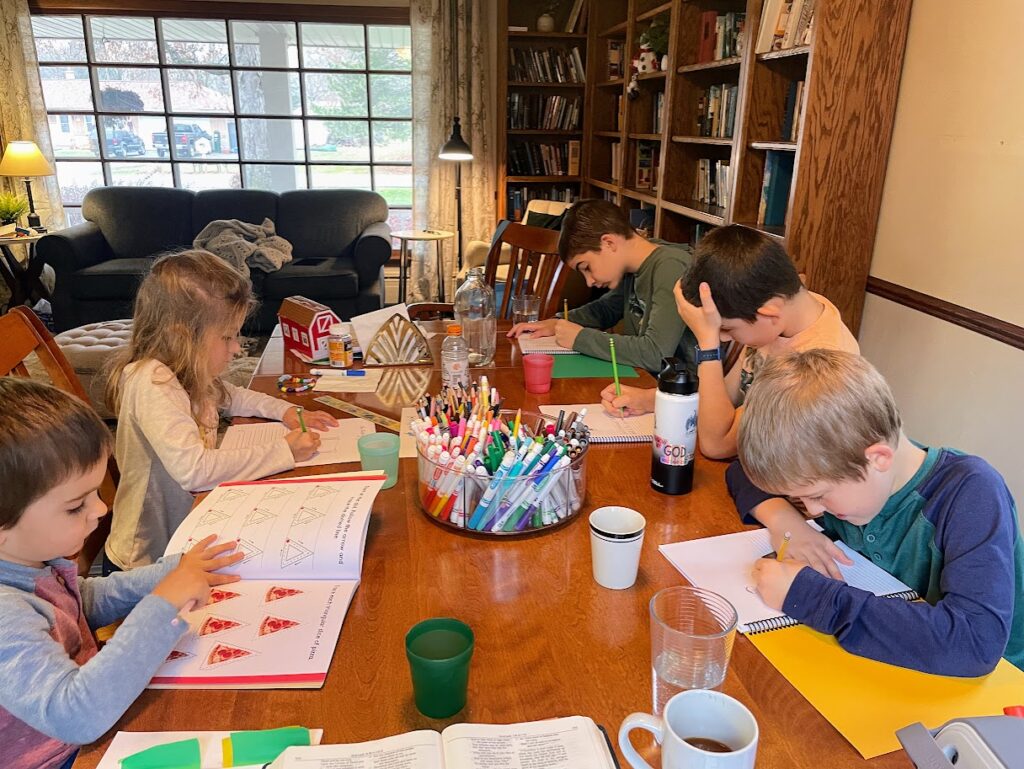
Seven years ago we were just beginning our homeschool journey.
Seven years from now our youngest will be eleven and I’ll probably still be homeschooling!
I hope and pray that when that time rolls around we will still be learning, still be curious, still be humble, and still be enjoying our life together.
It’s not perfect now and it won’t be perfect then, but it is good.
And for that I am thankful.

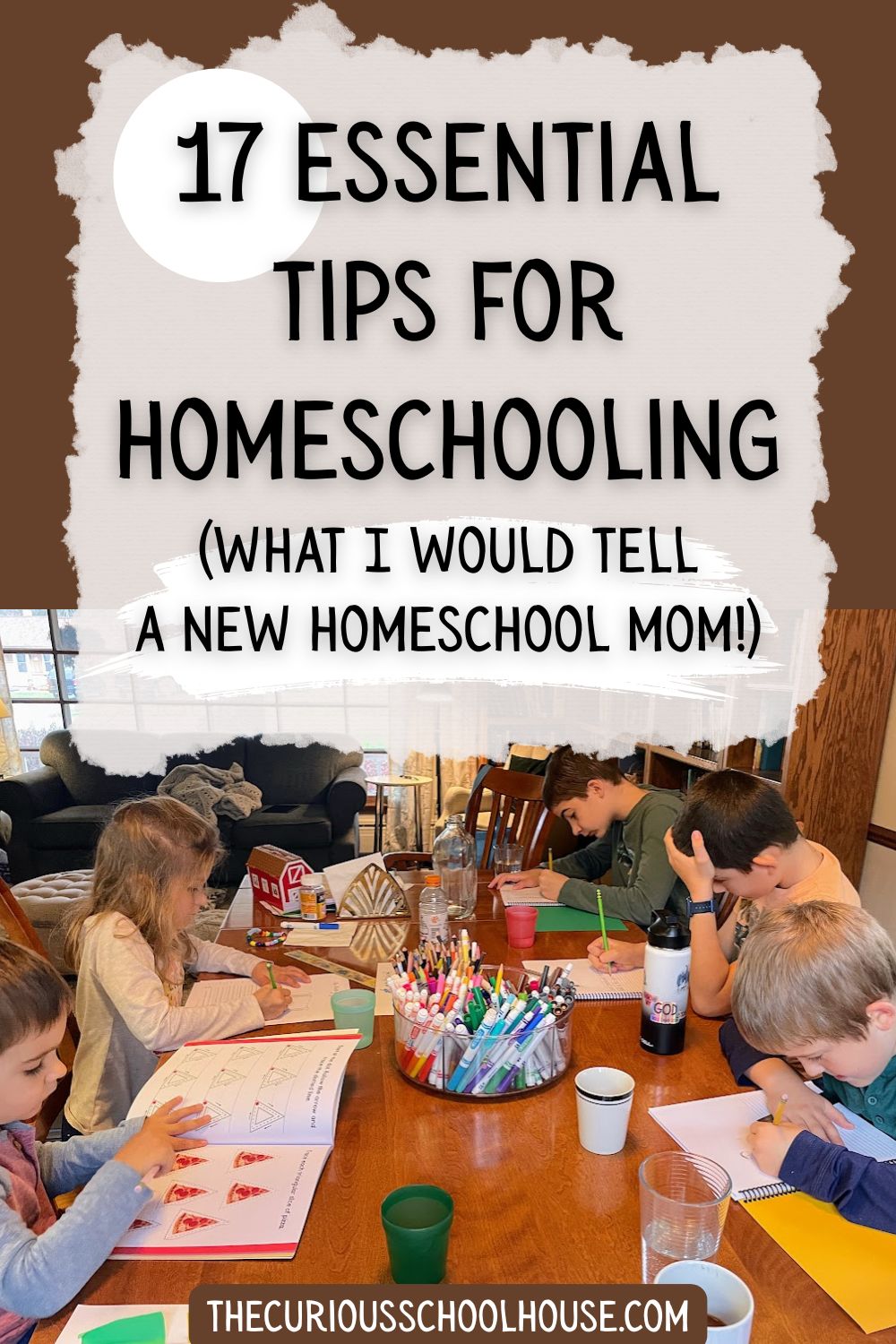
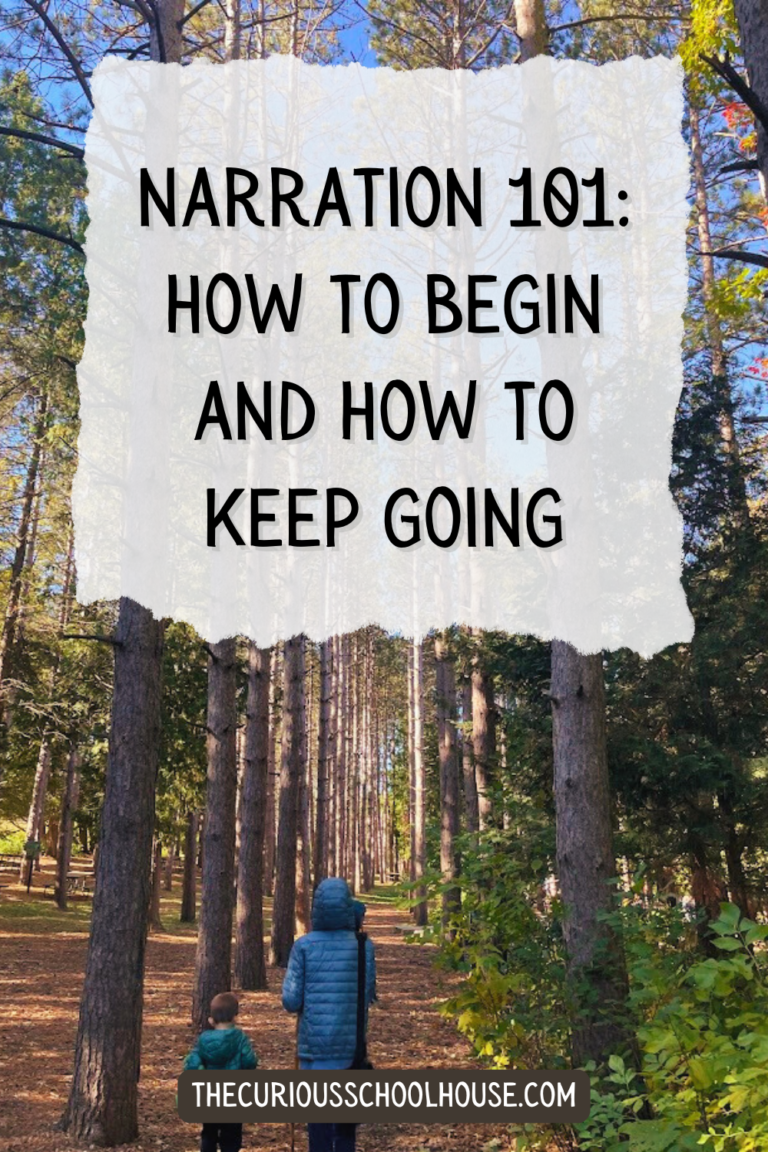
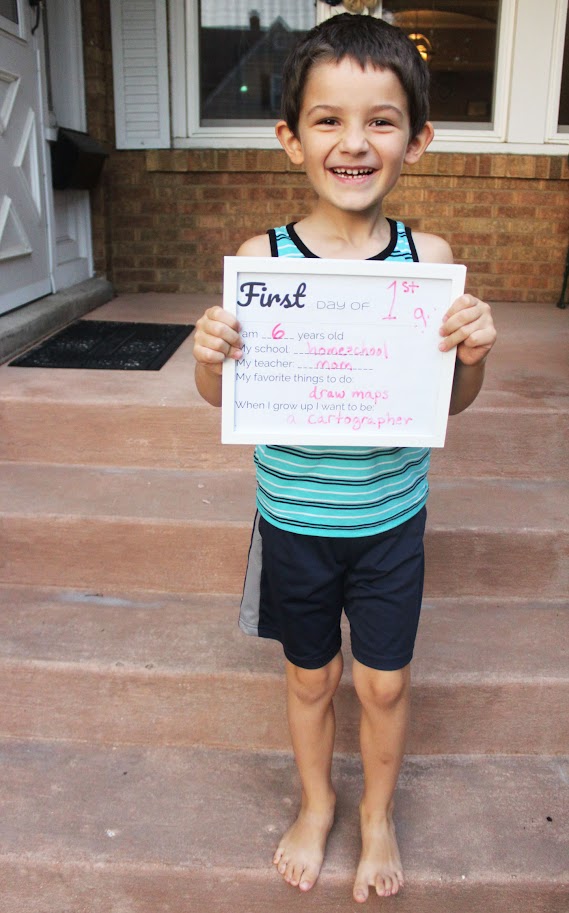

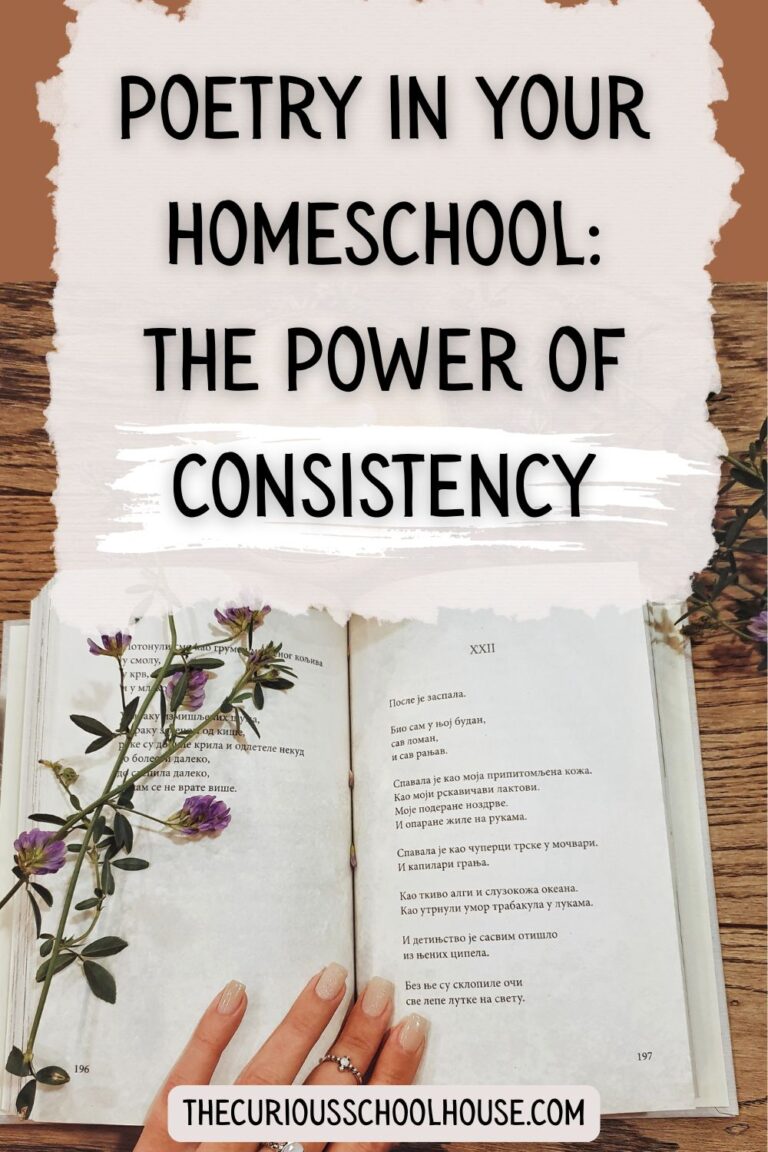


Wow, Emily! Thanks for much for this practical reminder. I believe we all get discouraged and worried we will fail but this helps take the pressure off.
You’re very welcome! 🙂